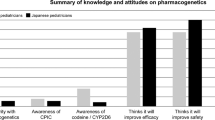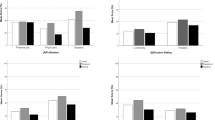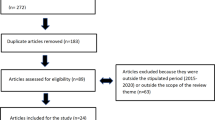Abstract
To assess public attitudes and interest in pharmacogenetic (PGx) testing, we conducted a random-digit-dial telephone survey of US adults, achieving a response rate of 42% (n=1139). Most respondents expressed interest in PGx testing to predict mild or serious side effects (73±3.29 and 85±2.91%, respectively), guide dosing (91%) and assist with drug selection (92%). Younger individuals (aged 18–34 years) were more likely to be interested in PGx testing to predict serious side effects (vs aged 55+ years), as well as Whites, those with a college degree, and who had experienced side effects from medications. However, most respondents (78±3.14%) were not likely to have a PGx test if there was a risk that their DNA sample or test result could be shared without their permission. Given differences in interest among some groups, providers should clearly discuss the purpose of testing, alternative testing options (if available) and policies to protect patient privacy and confidentiality.
This is a preview of subscription content, access via your institution
Access options
Subscribe to this journal
Receive 6 print issues and online access
$259.00 per year
only $43.17 per issue
Buy this article
- Purchase on Springer Link
- Instant access to full article PDF
Prices may be subject to local taxes which are calculated during checkout

Similar content being viewed by others
References
Kamali F, Wynne H . Pharmacogenetics of warfarin. Annu Rev Med 2010; 61: 63–75.
Frueh FW, Amur S, Mummaneni P, Epstein RS, Aubert RE, DeLuca TM et al. Pharmacogenomic biomarker information in drug labels approved by the United States food and drug administration: prevalence of related drug use. Pharmacotherapy 2008; 28: 992–998.
Zineh I, Gerhard T, Aquilante CL, Beitelshees AL, Beasley BN, Hartzema AG . Availability of pharmacogenomics-based prescribing information in drug package inserts for currently approved drugs. Pharmacogenomics J 2004; 4: 354–358.
Andrykowski MA, Munn RK, Studts JL . Interest in learning of personal genetic risk for cancer: a general population survey. Prev Med 1996; 25: 527–536.
Petersen GM, Larkin E, Codori AM, Wang CY, Booker SV, Bacon J et al. Attitudes toward colon cancer gene testing: survey of relatives of colon cancer patients. Cancer Epidemiol Biomarkers Prev 1999; 8 (4 Part 2): 337–344.
Hietala M, Hakonen A, Aro AR, Niemela P, Peltonen L, Aula P . Attitudes toward genetic testing among the general population and relatives of patients with a severe genetic disease: a survey from Finland. Am J Hum Genet 1995; 56: 1493–1500.
Andrykowski MA, Lightner R, Studts JL, Munn RK . Hereditary cancer risk notification and testing: how interested is the general population? J Clin Oncol 1997; 15: 2139–2148.
Sanderson SC, Wardle J . Associations between anticipated reactions to genetic test results and interest in genetic testing: will self-selection reduce the potential for harm? Genet Test 2008; 12: 59–66.
Sanderson SC, Wardle J, Jarvis MJ, Humphries SE . Public interest in genetic testing for susceptibility to heart disease and cancer: a population-based survey in the UK. Prev Med 2004; 39: 458–464.
Rogausch A, Prause D, Schallenberg A, Brockmoller J, Himmel W . Patients’ and physicians’ perspectives on pharmacogenetic testing. Pharmacogenomics 2006; 7: 49–59.
The Royal Society. Pharmacogenetics Dialogue (2005). Available at https://royalsociety.org/uploadedFiles/Royal_Society_Content/Influencing_Policy/Themes_and_Projects/Themes/Governance/Pharmareport_08-05.pdf. Accessed 4 February 2011.
Almarsdottir AB, Bjornsdottir I, Traulsen JM . A lay prescription for tailor-made drugs--focus group reflections on pharmacogenomics. Health Policy 2005; 71: 233–241.
Bates BR, Poirot K, Harris TM, Condit CM, Achter PJ . Evaluating direct-to-consumer marketing of race-based pharmacogenomics: a focus group study of public understandings of applied genomic medication. J Health Commun 2004; 9: 541–559.
Bevan JL, Lynch JA, Dubriwny TN, Harris TM, Achter PJ, Reeder AL et al. Informed lay preferences for delivery of racially varied pharmacogenomics. Genet Med 2003; 5: 393–399.
Condit C, Templeton A, Bates BR, Bevan JL, Harris TM . Attitudinal barriers to delivery of race-targeted pharmacogenomics among informed lay persons. Genet Med 2003; 5: 385–392.
Rothstein MA, Hornung CA . Public attitudes about pharmacogenomics. In: Rothstein MA (ed). Pharmacogenomics: Social, Ethical, and Clinical Dimensions. Wiley-Liss: New Jersey, 2003. pp 3–27.
O’Daniel J, Lucas J, Deverka P, Ermentrout D, Silvey G, Lobach DF et al. Factors influencing uptake of pharmacogenetic testing in a diverse patient population. Public Health Genomics 2009 (4 May 2009, e-pub ahead of print).
Lessler J, Forsyth B . A coding system for appraising questionnaires. In Answering Questions: Methodology for Determining Cognitive and Communicative Processes in Survey Research, Schwarz N & Sudman S. (eds.) Jossey-Bass 1995; 259–291.
The American Association for Public Opinion Research. Standard Definitions: Final Dispositions of Case Codes and Outcome Rates for Surveys, 5th edn. AAPOR: Lenexa, Kansas, 2008.
Statistics Netherlands. Blaise 4.6 Computer Software 2003.
US Census Bureau. American Community Survey 2008. Available at http://www.census.gov/acs/www/. Accessed 4 February 2011.
Zahran HS, Kobau R, Moriarty DG, Zack MM, Holt J, Donehoo R . Health-related quality of life surveillance--United States, 1993-2002. MMWR Surveill Summ 2005; 54: 1–35.
Bergus GR, Levin IP, Elstein AS . Presenting risks and benefits to patients. J Gen Intern Med 2002; 17: 612–617.
Morrison V, Henderson BJ, Taylor C, A’Ch Dafydd N, Unwin A . The impact of information order on intentions to undergo predictive genetic testing: an experimental study. J Health Psychol 2010; 15: 1082–1092.
Adelman L, Bresnick T, Black P, Marvin F, Sak S . Research with patriot air defense officers: examining information order effects. Human Factors 1996; 38: 250–261.
Wroe AL, Salkovskis PM . Factors influencing anticipated decisions about genetic testing: experimental studies. Br J Health Psychol 1999; 4: 19–40.
Jallinoja P, Aro AR . Does knowledge make a difference? The association between knowledge about genes and attitudes toward gene tests. J Health Commun 2000; 5: 29–39.
Catz DS, Green NS, Tobin JN, Lloyd-Puryear MA, Kyler P, Umemoto A et al. Attitudes about genetics in underserved, culturally diverse populations. Community Genet 2005; 8: 161–172.
Rose A, Peters N, Shea JA, Armstrong K . The association between knowledge and attitudes about genetic testing for cancer risk in the United States. J Health Commun 2005; 10: 309–321.
Tan EK, Lee J, Hunter C, Shinawi L, Fook-Chong S, Jankovic J . Comparing knowledge and attitudes towards genetic testing in Parkinson's disease in an American and Asian population. J Neurol Sci 2007; 252: 113–120.
Gottweis H . Gene therapy and the public: a matter of trust. Gene Ther 2002; 9: 667–669.
Pagan JA, Su D, Li L, Armstrong K, Asch DA . Racial and ethnic disparities in awareness of genetic testing for cancer risk. Am J Prev Med 2009; 37: 524–530.
Thompson HS, Valdimarsdottir HB, Jandorf L, Redd W . Perceived disadvantages and concerns about abuses of genetic testing for cancer risk: differences across African American, Latina and Caucasian women. Patient Educ Couns 2003; 51: 217–227.
Satia JA, McRitchie S, Kupper LL, Halbert CH . Genetic testing for colon cancer among African-Americans in North Carolina. Prev Med 2006; 42: 51–59.
Fargher EA, Eddy C, Newman W, Qasim F, Tricker K, Elliott RA et al. Patients’ and healthcare professionals’ views on pharmacogenetic testing and its future delivery in the NHS. Pharmacogenomics 2007; 8: 1511–1519.
Kinney AY, Croyle RT, Dudley WN, Bailey CA, Pelias MK, Neuhausen SL . Knowledge, attitudes, and interest in breast-ovarian cancer gene testing: a survey of a large African-American kindred with a BRCA1 mutation. Prev Med 2001; 33: 543–551.
Cowan R, Meiser B, Giles GG, Lindeman GJ, Gaff CL . The beliefs, and reported and intended behaviors of unaffected men in response to their family history of prostate cancer. Genet Med 2008; 10: 430–438.
Shields AE, Blumenthal D, Weiss KB, Comstock CB, Currivan D, Lerman C . Barriers to translating emerging genetic research on smoking into clinical practice. Perspectives of primary care physicians. J Gen Intern Med 2005; 20: 131–138.
Shields AE, Levy DE, Blumenthal D, Currivan D, McGinn-Shapiro M, Weiss KB et al. Primary care physicians’ willingness to offer a new genetic test to tailor smoking treatment, according to test characteristics. Nicotine Tob Res 2008; 10: 1037–1045.
Woelderink A, Ibarreta D, Hopkins MM, Rodriguez-Cerezo E . The current clinical practice of pharmacogenetic testing in Europe: TPMT and HER2 as case studies. Pharmacogenomics J 2006; 6: 3–7.
Hedgecoe A . ‘At the point at which you can do something about it, then it becomes more relevant’: informed consent in the pharmacogenetic clinic. Soc Sci Med 2005; 61: 1201–1210.
Hedgecoe AM . Context, ethics and pharmacogenetics. Stud Hist Philos Biol Biomed Sci 2006; 37: 566–582.
Ropka ME, Wenzel J, Phillips EK, Siadaty M, Philbrick JT . Uptake rates for breast cancer genetic testing: a systematic review. Cancer Epidemiol Biomarkers Prev 2006; 15: 840–855.
Persky S, Kaphingst KA, Condit CM, McBride CM . Assessing hypothetical scenario methodology in genetic susceptibility testing analog studies: a quantitative review. Genet Med 2007; 9: 727–738.
Acknowledgements
This work was supported by the National Institutes of Health (R01 GM081416-01A1).
Author information
Authors and Affiliations
Corresponding author
Ethics declarations
Competing interests
Dr Haga is a member of the Patient Advisory and Public Policy Board of Generations Health.
PowerPoint slides
Rights and permissions
About this article
Cite this article
Haga, S., O'Daniel, J., Tindall, G. et al. Survey of US public attitudes toward pharmacogenetic testing. Pharmacogenomics J 12, 197–204 (2012). https://doi.org/10.1038/tpj.2011.1
Received:
Revised:
Accepted:
Published:
Issue Date:
DOI: https://doi.org/10.1038/tpj.2011.1
Keywords
This article is cited by
-
Precision medicine from a citizen perspective: a survey of public attitudes towards pharmacogenomics in Flanders
BMC Medical Genomics (2022)
-
Gene-drug pairings for antidepressants and antipsychotics: level of evidence and clinical application
Molecular Psychiatry (2022)
-
Expectations and educational needs of rheumatologists, rheumatology fellows and patients in the field of precision medicine in Canada, a quantitative cross-sectional and descriptive study
BMC Rheumatology (2021)
-
Underrepresented patient views and perceptions of personalized medication treatment through pharmacogenomics
npj Genomic Medicine (2021)
-
Barriers and facilitators to dissemination and adoption of precision medicine among Hispanics/Latinos
BMC Public Health (2020)



